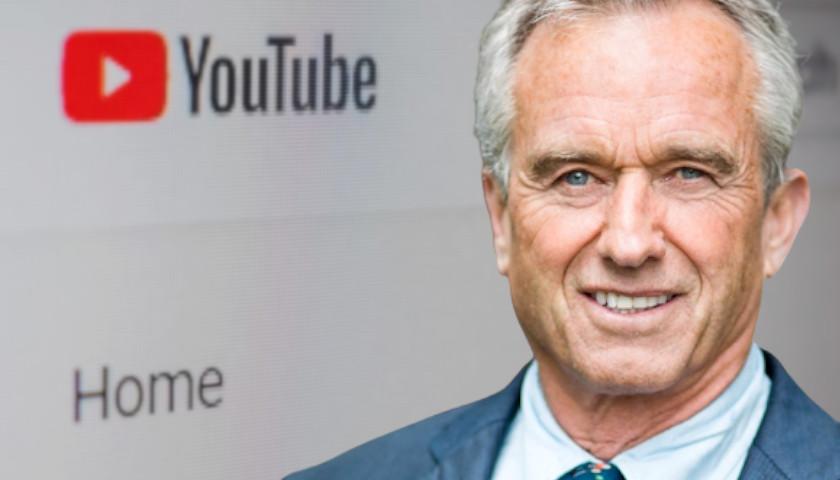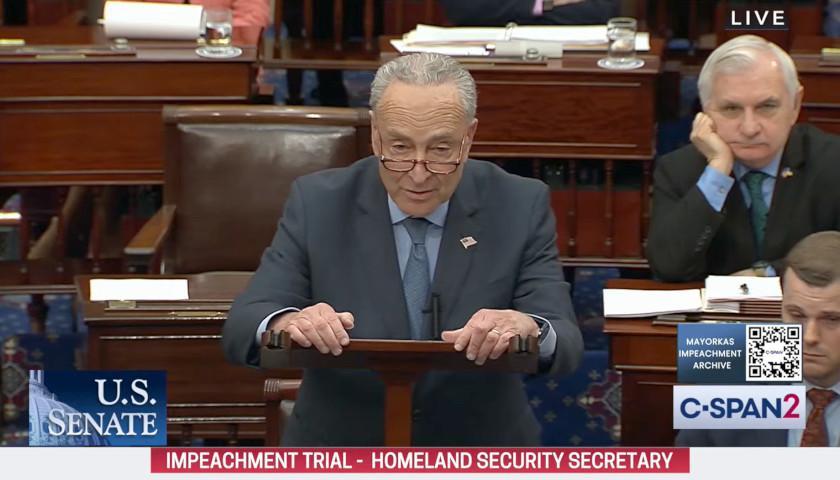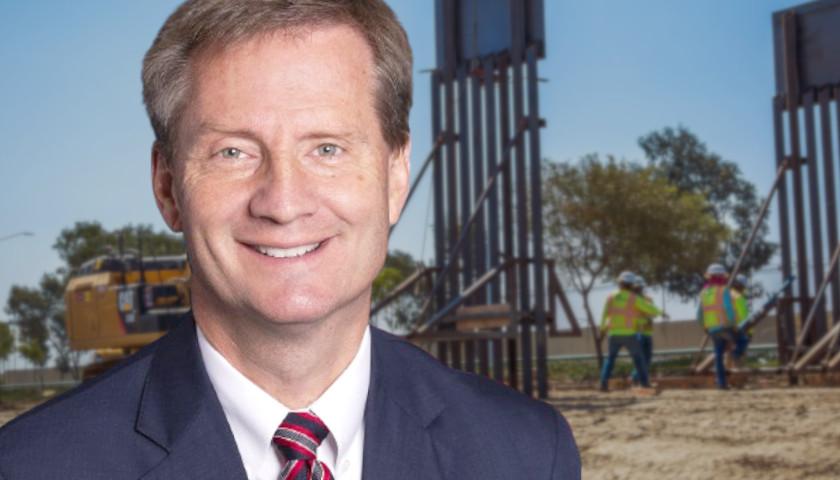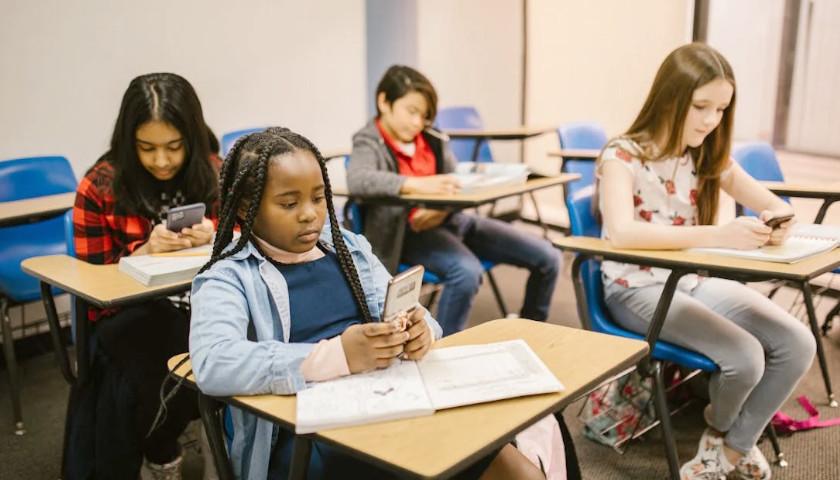by Greg Piper
The disputed 2020 election now appears in the rearview mirror for YouTube, which is now determining what users can see relevant to the next election.
The Alphabet-owned, video-sharing site and Google sibling has censored at least two videos, and may be throttling a third, featuring Democratic presidential candidate Robert F. Kennedy Jr. shortly after ending a two-and-a-half-year ban on questioning the “integrity” of the last presidential election, saying it accomplished little relative to the potential harm it caused.
Leading Democrats who insist they are “firm believers in the First Amendment” aren’t pleased with YouTube simply switching which election it will target for censorship.
The ranking members on the House Energy and Commerce Committee and its subcommittees told YouTube last week that the “integrity” ban reversal “threatens to weaken our democracy” by subjecting the 2024 campaign to “several of the same misinformation tactics,” such as former President Trump’s claims in a campaign stop in Waco, Texas.
The censorship of a scion of America’s best-known political family is even more striking given the possibility that Democrats sour on incumbent President Joe Biden.
Amid polling that shows potential voters disapproving on Biden’s effort on the economy, immigration and other key issues, they’ve also raised concerns about his mental acuity, which White House aides says is not an issue.
Still, the 80-year-old president mixed up Iraq with Ukraine and initially referred to Indian Prime Minister Narendra Modi as “my new best friend, the prime minister of China” — India’s geopolitical foe — at a fundraiser and White House event less than a day apart, Bloomberg News reporter Nancy Cook noted Wednesday morning.
Days earlier Biden apparently confused the American and Indian national anthems during Modi’s state visit, putting his hand on his heart for the latter.
NOW – Biden: Putin "is clearly losing the war in Iraq."pic.twitter.com/fF8fdxfKVH
— Disclose.tv (@disclosetv) June 28, 2023
Biden, alongside Indian Prime Minister Narendra Modi, slowly lowers his hand from his heart after realizing they're playing the Indian national anthem first pic.twitter.com/hcb0cpjFmN
— RNC Research (@RNCResearch) June 22, 2023
YouTube announced June 2 it had a change in policy on purported misinformation about the 2020 election, under which it removed “tens of thousands” of videos since December 2020.
“In the current environment, we find that while removing this content does curb some misinformation” about “widespread fraud, errors, or glitches” that might have swung the election to Biden instead of President Trump, “it could also have the unintended effect of curtailing political speech without meaningfully reducing the risk of violence or other real-world harm,” YouTube wrote.
The company did not have similar qualms, however, about taking down psychologist Jordan Peterson’s podcast interview with Kennedy for “general vaccine misinformation” on June 18, nearly two weeks after it was posted. It’s still available on Spotify.
Without specifying what content it found false, a spokesperson included a highly specific section of its policy in a statement to Fox News: “content that falsely says that approved vaccines cause autism, cancer or infertility, or that substances in vaccines can track those who receive them.”
Now @YouTube has taken upon itself to actively interfere with a presidential election campaign @RobertKennedyJr https://t.co/XmgOYTl3NN
— Dr Jordan B Peterson (@jordanbpeterson) June 18, 2023
The Peterson video removal earned YouTube no credit with Reps. Frank Pallone (D-N.J.), Jan Schakowsky (D-Ill.), Doris Matsui (D-Calif.) and Kathy Castor (D-Fla.), who shared their “deep disappointment” over the election misinformation policy change in a June 22 letter to Alphabet CEO Sundar Pichai and YouTube CEO Neal Mohan.
The House Energy and Commerce Committee Democrats challenged YouTube’s claim that open debate on political ideas, “even those that are controversial or based on disproven assumptions, is core to a functioning democratic society–especially in the midst of election season.”
They demanded YouTube “provide a detailed explanation” how purported 2020 misinformation does not violate its remaining policies on “previously removed content” or general election misinformation, especially through its potential to suppress voter turnout. YouTube’s June 2 statement said “false claims that could materially discourage voting” were still banned.
Democrats also seek YouTube’s plans to “fact check, label, provide context around, or reduce the spread of such content on its platform,” any “new policies or tools” for 2024 it hasn’t publicized, and how it will handle 2024 misinformation that includes 2020 misinformation.
Kennedy said Sunday that supporters who tried to “rebroadcast” his June 20 “Peace and Diplomacy” speech on their channels were sending him screenshots of YouTube warnings that the video violates its medical misinformation policy.
While the video remains live and is not labeled as misinformation, “it appears that they are actively suppressing it’s reach,” Kennedy said. His speech at Saint Anselm College, introduced by 2004 far-left Democratic presidential candidate Dennis Kucinich, is also available on Rumble and Bitchute.
The latest indignity for Kennedy was YouTube pulling his interview Tuesday with former New York Post political reporter Al Guart, who is now a spiritual guru. The censored video page says it was removed for violating YouTube’s community guidelines, with no specificity.
Guart speculated YouTube didn’t like Kennedy pledging to make tech giants “common carriers” like heavily regulated phone companies if they did not end the “unAmerican [sic] practice of censorship.” The interview is also posted on Rumble and Spotify.
.@YouTube just pulled another of my videos, with former NY Post political reporter @al_guart. People made a big deal about Russia supposedly manipulating internet information to influence a Presidential election. Shouldn’t we be worried when giant tech corporations do the same?
— Robert F. Kennedy Jr (@RobertKennedyJr) June 27, 2023
Facebook sibling Instagram restored Kennedy’s personal account, suspended since December 2021 for purported COVID-19 misinformation, earlier this month after Kennedy publicly shamed the Meta-owned company for its “profoundly undemocratic” six-month suspension of his presidential campaign account as soon as it was created.
Meta told The Washington Post the immediate suspension of his campaign was a mistake, without explaining how it happened.
Google, which handles queries for YouTube, didn’t answer requests to explain what specific Kennedy claims violated its policies, how the video removals do not risk the same “unintended effect of curtailing political speech” from the earlier policy, what exactly it’s doing to Kennedy’s “Peace and Diplomacy” speech, and how it responded to the Democrats’ letter.
It’s not just Alphabet- and Meta-owned companies kneecapping the son of the assassinated attorney general, environmental activist and vaccine skeptic.
EIN Presswire refused to send the June 21 kickoff announcement for a super PAC supporting Kennedy, founded by his longtime book publisher, Tony Lyons, among others, and closed its account, according to emails American Values 2024 shared with Just the News.
It cited unspecified violation of its terms – “topic, insufficient account details, etc.” A refund confirmation email followed an hour later.
A super PAC spokesperson told Just the News an EIN Presswire spokesperson told him “we just can’t put out this content,” hung up and didn’t answer when called back. The company didn’t answer Just the News queries.
– – –
Greg Piper is a Just the News reporter who has covered law and policy for nearly two decades, with a focus on tech companies, civil liberties and higher education.
Photo “Robert Kennedy Jr.” by Robert Kennedy Jr.









Robert F. Kennedy’s Uncle said it well,
“We are not AFRAID to entrust the American people with unpleasant facts, foreign ideas, alien philosophies and competitive values. For a nation that is AFRAID to let its people judge the truth and falsehood in an open market is a nation that is AFRAID of its people.” –John F. Kennedy (Cap emphasis mine)
The censors are cowards. They talk about someone, but are AFRAID to talk to them.
You Tube, Google, Twitter, Instagram are not the center of the universe. I dumped them all long ago. There are other platforms that don’t engage in censorship available online.
Isn’t all this censorship what happened in Nazi Germany?